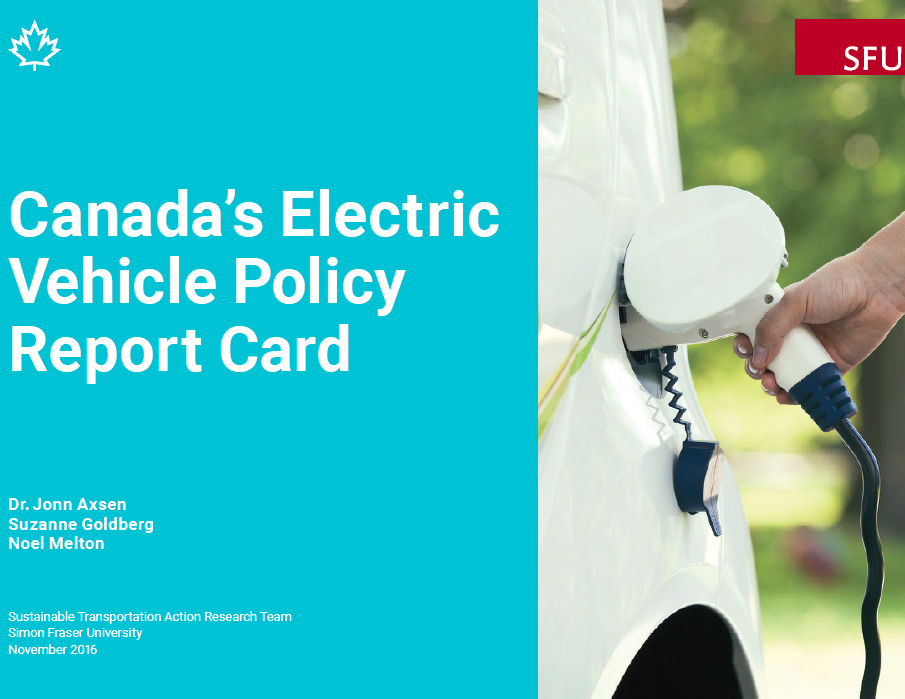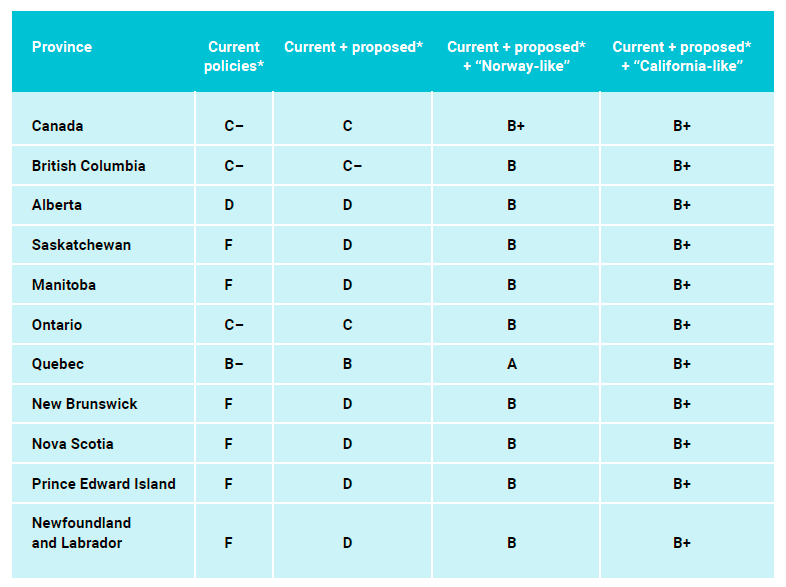Canada Not Yet Making the Electric Vehicle Grade
Posted by Michelle Cholak on November 15, 2016

Canadian provinces are not doing enough to get electric vehicles on the road, according to a new report from Simon Fraser University’s Sustainable Transportation Action Research Team (START). Six of Canada’s 10 provinces receive an “F” grade in Canada’s Electric Vehicle Policy Report Card, with the balance an unfortunate mix of Ds, C-minuses and Cs. Only one province, Quebec, scores a respectable B-. Overall, Canada receives a grade of “C–” for existing policies, which translates to a “marginal” impact on long-term EV sales.
The aim of the report is to provide provincial leaders with an assessment of whether current and planned EV policies will cut transportation-related greenhouse gas emissions at the scope, scale, and speed needed to prevent dangerous climate change.
“An electric vehicle is an iconic symbol of climate action, and for good reason—in Canada, an EV will produce between 45 and 98 per cent fewer carbon emissions than a comparable gasoline vehicle,” said Jonn Axsen, an associate professor in the school’s Faculty of Environment, and co-author of the study in a media release issued by SFU. “Unfortunately, we find that Canada as a whole is not providing the policies needed to make electric mobility happen in a big way.”
Six provinces received an “F” grade because the policies currently in place are not likely to encourage electric vehicle market shares greater than five per cent by 2040. Quebec received the highest score, with a grade of “B–”. The province is expected to reach an estimated market share of 24% by 2040 due to their recently passed ZEV mandate, which Axsen calls a “game-changing policy that could make a big difference if implemented at the national level.” British Columbia, Ontario and Alberta all get passing grade but their policies are expected to have a more moderate impact and as a whole, Canada receives a grade of “C–” based on current policies.

The International Energy Agency suggests that 40 per cent of new passenger-vehicle sales must be electric by 2040 if the world is to limit global warming to two degrees Celsius—a goal of the Paris Agreement. The START team examined all the various combinations of EV policies either in place or planned across Canada to see which, if any, provinces are on track for that goal. None were.
“As the federal government prepares to release its forthcoming climate framework, the report really highlights the opportunity for Ottawa to lift all boats with strong EV policy,” said adjunct professor Suzanne Goldberg, who co-authored the study with Axsen. “Ottawa’s leadership could make cleaner cars an easier choice for all Canadians—especially those living in provinces that have yet to support them.”
The full report from Simon Fraser University’s Sustainable Transportation Action Research Team (START) is available at sustainabletransport.ca.
Filed under: Sustainability 101